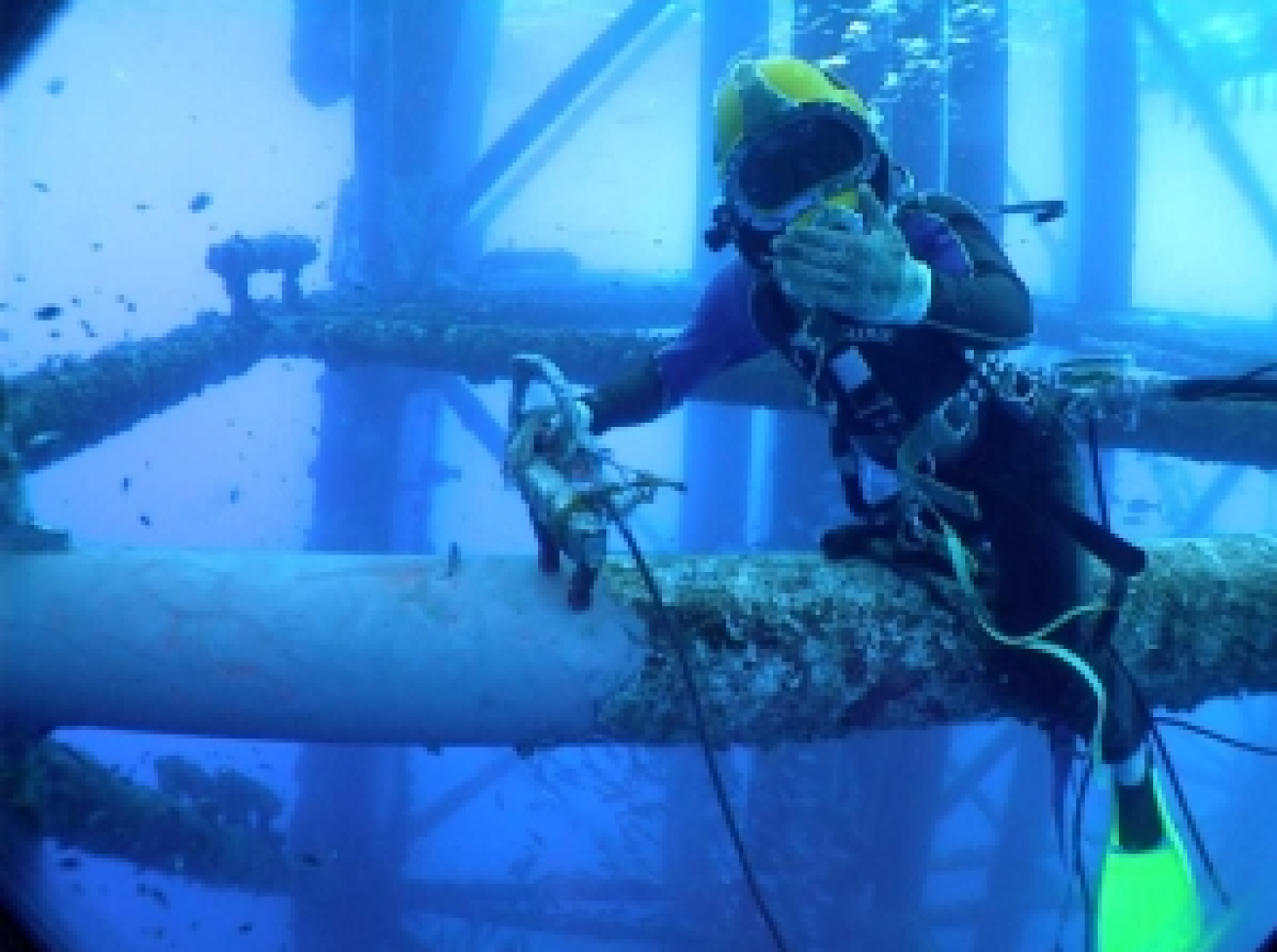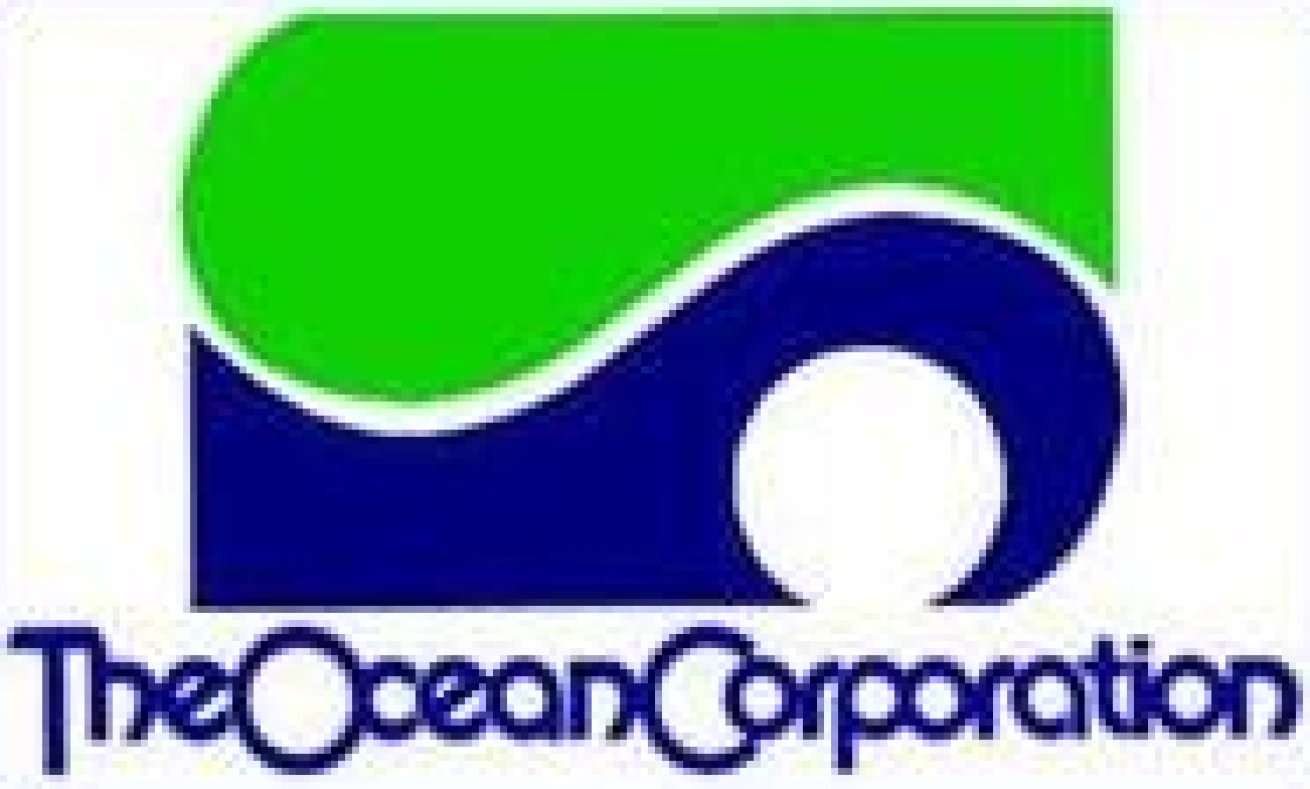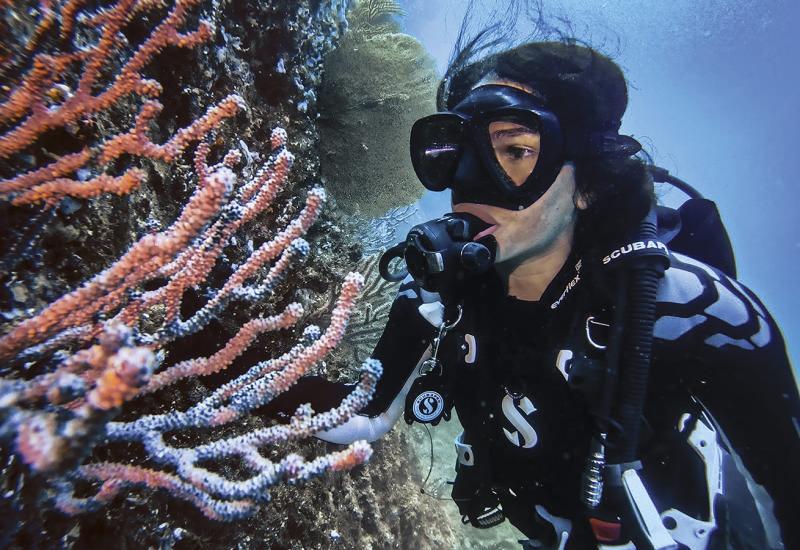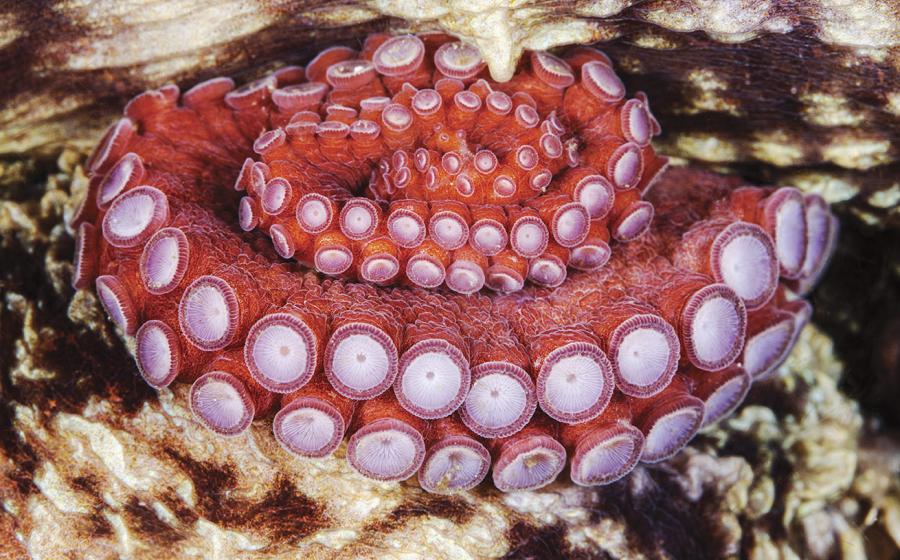Commercial Diving: Join the Tradition

Ocean Corp - Diver 2
Ocean Corp. gets divers ready for a dream career seeing the world
Scuba divers are so passionate because diving is the ultimate way to see this planet. The places and opportunities that only diving presents are endless. You could spend a lifetime exploring the five oceans that surround Earth's seven continents and still not have nearly enough time to dive into the countless dive sites in the seas, the lakes and the rivers across the planet. After all, balancing your career, you only have so much vacation time for diving. But what if diving was your career?
Just consider that idea for a moment. Then consider Ocean Corporation. Since 1969, this Houston-based company has trained people with a strong passion for scuba diving to become ultimate divers. The skills that Ocean Corp. teaches at its Texas training complex and in open-water dives in Galveston have led divers into exciting careers in commercial diving. They pursue what every diver wants to do: explore the world through diving.
To make that dream a reality, Ocean Corp. has leads divers through the perfectly named Ultimate Diver Training program. In the program, divers are taught all the essentials of scuba diving, of course, plus air diving, mixed gas and saturation diving, underwater welding, underwater nondestructive testing, remotely operated vehicles, decompression chambers, rigging, offshore safety and survival, and they receive a HAZWOPER certification for diving in contaminated environments.
That training is the culmination of a long tradition of this type of challenging diving. The commercial pursuits and opportunities for diving below the water’s surface have changed over the centuries from shallow water, breath hold diving for diving for pearls and sponges to our present day demands for deep-water diving that require the use of large compressors to supply air and mixed gases to commercial divers hundreds of feet below the surface.
Modern day commercial divers are routinely called upon to perform construction, inspection, repairs and salvage on a variety of structures including bridges, dams, harbors, ports, water towers, nuclear plants and oil platforms. They perform these functions in both fresh and salt water. With the use of special equipment, commercial divers can also access contaminated environments such as water treatment or sewage facilities as well as chemical and oil tankers.
Job and skill requirements have changed greatly since Ocean Corp. first began training men and women for oil field diving back more than 40 years ago. During the first decade of offshore oil exploration in the Gulf of Mexico, the discoveries made revealed vast reserves of crude oil and gas below the sea floor on the continental shelf. The continental shelf extends out into the Gulf approximately 100 miles from the Texas coast line and water depths on the shelf are relatively shallow. Commercial divers working in the Gulf during the 1970s constructed the very first platforms for oil production. They rarely dived deeper than 200 feet so most dives were air dives. Commercial diver training at Ocean Corp. during that first decade was designed to meet the demands required of the new offshore oil and gas industry and primarily focused on air diving and underwater welding and burning.
Offshore oil production increased from the late 1970s to the '80s. As it did, platforms grew larger and were in deeper waters. Demand for trained commercial divers also increased during this period and so did the level of skill required to work on the deep-water projects. Recognizing the complexities of deep-water work, Ocean Corp. incorporated mixed gas and bell diving into their training program. Increased depths and bottom times require the use of helium/oxygen breathing gas and diving bells for safe diver transportation from the ship to dive site then back from dive site to deco chambers. Offshore Safety and Survival, rigging and Nondestructive Testing (NDT) were also added to the program shortly after the introduction of bells and mixed gas.
Today, many people consider commercial divers to be some of the most skilled and highly rewarded craftsmen in the world. Since 1969, many commercial divers have been able to attribute their success to the training and job placement assistance they received from The Ocean Corporation.
As long as every scuba diver wants to explore the world as only divers can, Ocean Corp. will give them the skills and the opportunities to pursue that passion. For such passionate divers, commercial diving is the ultimate dream come true.
Brought to you by: Ocean Corporation

Ocean Corp. gets divers ready for a dream career seeing the world
Scuba divers are so passionate because diving is the ultimate way to see this planet. The places and opportunities that only diving presents are endless. You could spend a lifetime exploring the five oceans that surround Earth's seven continents and still not have nearly enough time to dive into the countless dive sites in the seas, the lakes and the rivers across the planet. After all, balancing your career, you only have so much vacation time for diving. But what if diving was your career?
Just consider that idea for a moment. Then consider Ocean Corporation. Since 1969, this Houston-based company has trained people with a strong passion for scuba diving to become ultimate divers. The skills that Ocean Corp. teaches at its Texas training complex and in open-water dives in Galveston have led divers into exciting careers in commercial diving. They pursue what every diver wants to do: explore the world through diving.
To make that dream a reality, Ocean Corp. has leads divers through the perfectly named Ultimate Diver Training program. In the program, divers are taught all the essentials of scuba diving, of course, plus air diving, mixed gas and saturation diving, underwater welding, underwater nondestructive testing, remotely operated vehicles, decompression chambers, rigging, offshore safety and survival, and they receive a HAZWOPER certification for diving in contaminated environments.
That training is the culmination of a long tradition of this type of challenging diving. The commercial pursuits and opportunities for diving below the water’s surface have changed over the centuries from shallow water, breath hold diving for diving for pearls and sponges to our present day demands for deep-water diving that require the use of large compressors to supply air and mixed gases to commercial divers hundreds of feet below the surface.
Modern day commercial divers are routinely called upon to perform construction, inspection, repairs and salvage on a variety of structures including bridges, dams, harbors, ports, water towers, nuclear plants and oil platforms. They perform these functions in both fresh and salt water. With the use of special equipment, commercial divers can also access contaminated environments such as water treatment or sewage facilities as well as chemical and oil tankers.
Job and skill requirements have changed greatly since Ocean Corp. first began training men and women for oil field diving back more than 40 years ago. During the first decade of offshore oil exploration in the Gulf of Mexico, the discoveries made revealed vast reserves of crude oil and gas below the sea floor on the continental shelf. The continental shelf extends out into the Gulf approximately 100 miles from the Texas coast line and water depths on the shelf are relatively shallow. Commercial divers working in the Gulf during the 1970s constructed the very first platforms for oil production. They rarely dived deeper than 200 feet so most dives were air dives. Commercial diver training at Ocean Corp. during that first decade was designed to meet the demands required of the new offshore oil and gas industry and primarily focused on air diving and underwater welding and burning.
Offshore oil production increased from the late 1970s to the '80s. As it did, platforms grew larger and were in deeper waters. Demand for trained commercial divers also increased during this period and so did the level of skill required to work on the deep-water projects. Recognizing the complexities of deep-water work, Ocean Corp. incorporated mixed gas and bell diving into their training program. Increased depths and bottom times require the use of helium/oxygen breathing gas and diving bells for safe diver transportation from the ship to dive site then back from dive site to deco chambers. Offshore Safety and Survival, rigging and Nondestructive Testing (NDT) were also added to the program shortly after the introduction of bells and mixed gas.
Today, many people consider commercial divers to be some of the most skilled and highly rewarded craftsmen in the world. Since 1969, many commercial divers have been able to attribute their success to the training and job placement assistance they received from The Ocean Corporation.
As long as every scuba diver wants to explore the world as only divers can, Ocean Corp. will give them the skills and the opportunities to pursue that passion. For such passionate divers, commercial diving is the ultimate dream come true.
Brought to you by: Ocean Corporation










